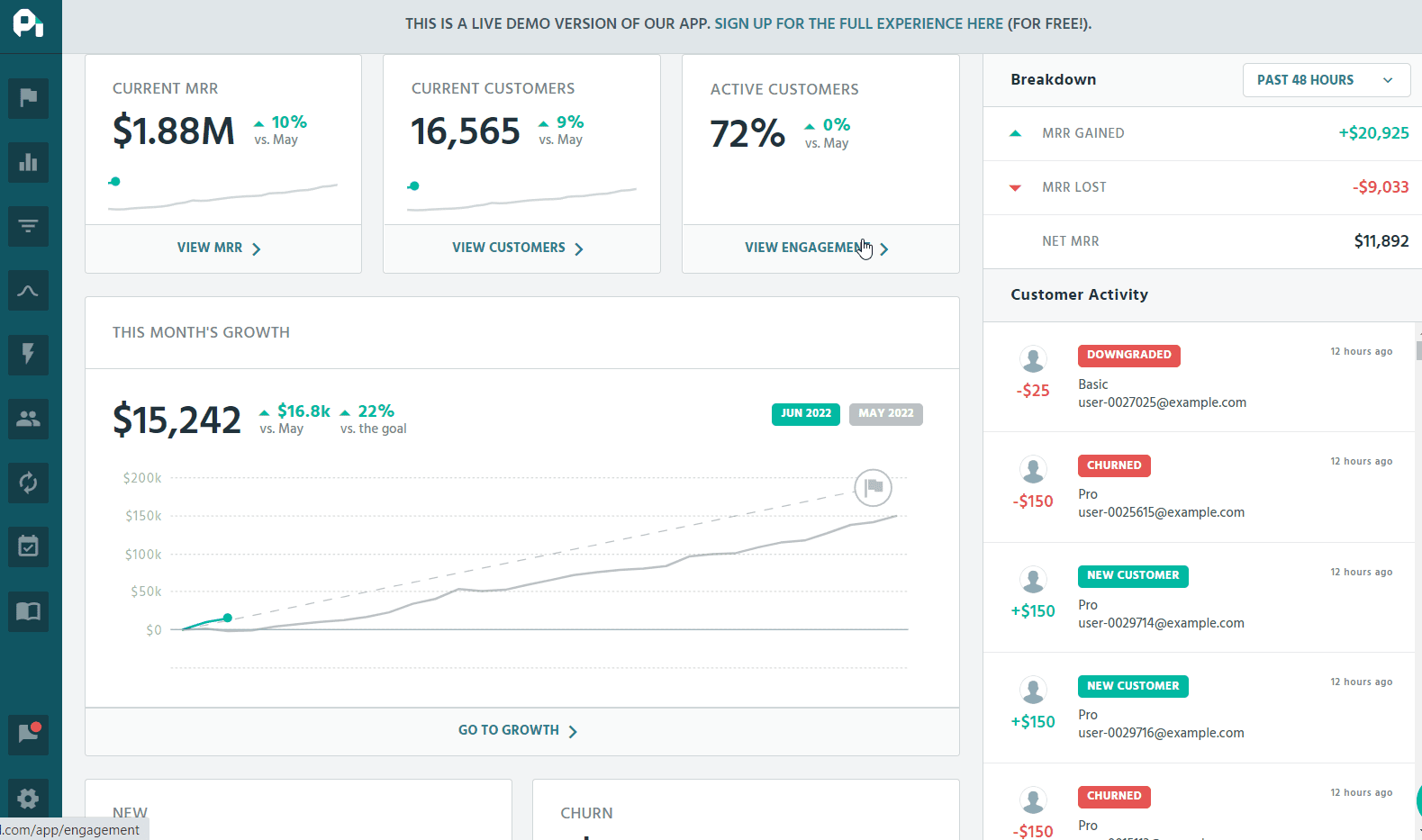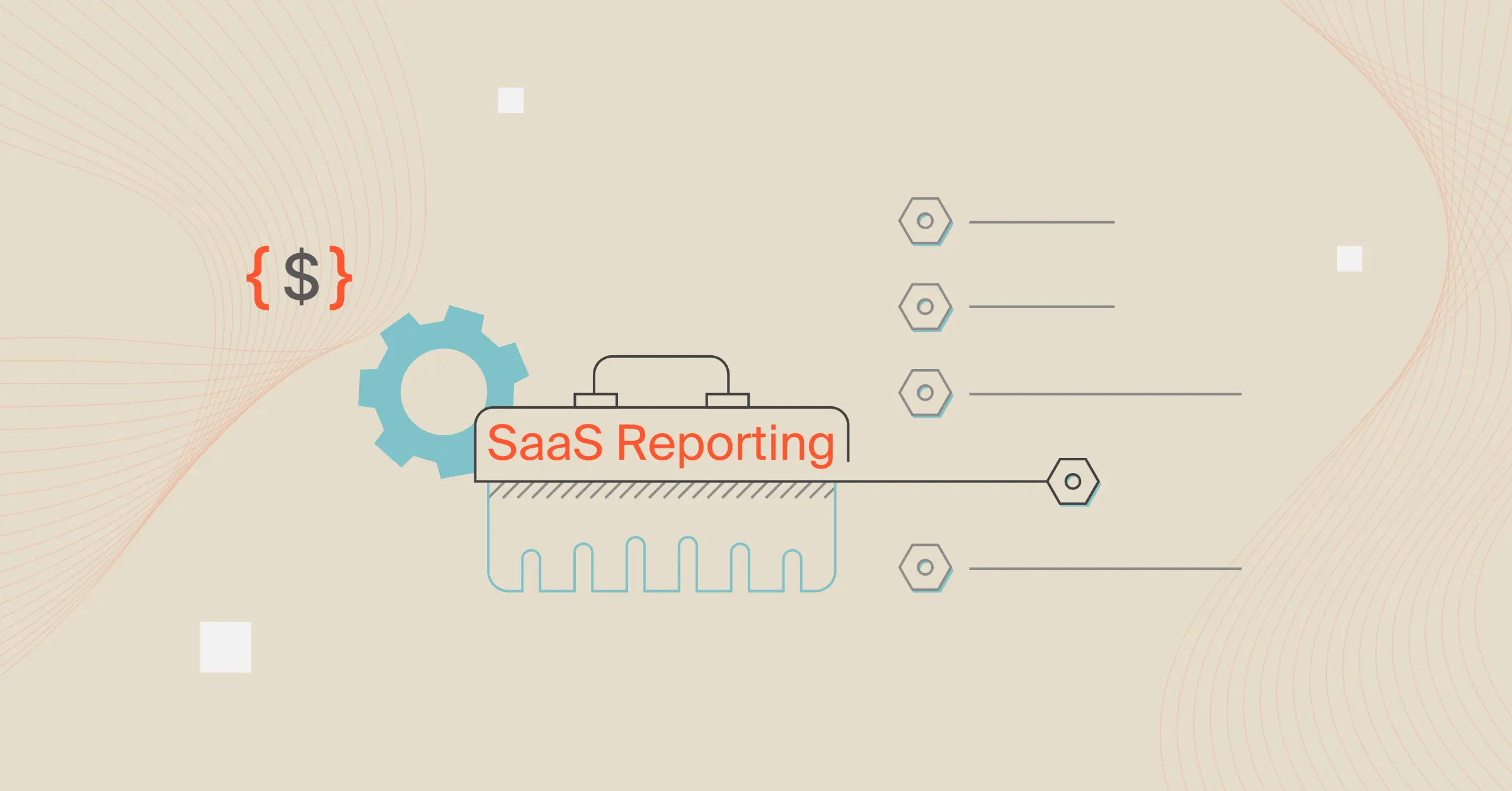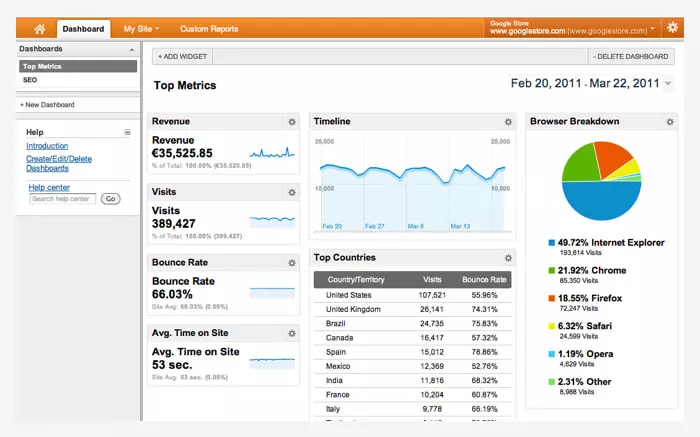Are you feeling overwhelmed by the endless stream of data flowing through your business? Do you often find yourself drowning in spreadsheets, struggling to make sense of it all?
If so, you're not alone. The world of data can be complex and daunting, especially when you're trying to make informed decisions that drive growth. That's where SaaS reporting tools come to the rescue. These powerful tools are designed to simplify data analysis, offering you clear insights at your fingertips.
Imagine having the ability to transform raw data into actionable strategies with just a few clicks. Intrigued? Read on to discover how SaaS reporting tools can revolutionize the way you manage and interpret your business data, helping you stay ahead of the competition and make decisions with confidence.
What Are Saas Reporting Tools?
SaaS reporting tools are essential for modern businesses. These tools help analyze data and generate reports. They operate via the cloud, making access easy. Users can view and share insights from anywhere.
These tools often offer real-time data updates. This ensures businesses have the latest information. Companies can make informed decisions quickly. The tools are designed to be user-friendly. Even those with little technical knowledge can use them effectively.
How Do Saas Reporting Tools Work?
SaaS reporting tools collect data from various sources. They integrate with existing systems and databases. Once collected, they process this data. The tools then present the data in easy-to-read formats. Dashboards and graphs are common outputs. Users can customize reports to fit their needs.
Key Features Of Saas Reporting Tools
These tools offer a range of features. Customizable dashboards are popular. Users can tailor these to show relevant metrics. Automated report generation saves time. Users can schedule reports to run at specific times. Collaborative features allow teams to share insights.
Benefits Of Using Saas Reporting Tools
One major benefit is improved efficiency. Automated reports reduce manual work. This allows teams to focus on analysis. Real-time data access leads to quicker decisions. Businesses can react to changes faster. This can lead to a competitive advantage.
Several tools are popular in the market. Tools like Tableau and Looker are widely used. They offer robust features and integrations. Google Data Studio is another option. It is known for its ease of use. Each tool has its unique strengths.

Credit: www.putler.com
Benefits For Business Insights
SaaS reporting tools offer essential benefits for business insights. These tools help businesses understand their data better. They provide clear, actionable insights. With them, companies can make informed decisions quickly.
Real-time Data Access
Accessing data instantly is crucial for businesses. SaaS reporting tools deliver real-time data updates. This ensures managers have the latest information. They can react to changes swiftly. No need to wait for reports. This speed enhances business agility.
Enhanced Decision Making
Better data leads to better decisions. SaaS reporting tools simplify complex data. They present information in an understandable format. This clarity helps decision-makers. They can identify trends easily. Making strategic choices becomes straightforward.
Cost Efficiency
Saving money is a priority for any business. SaaS reporting tools eliminate the need for expensive software. They offer affordable solutions. Subscription models reduce upfront costs. Businesses pay only for what they use. This approach is budget-friendly.
Key Features To Look For
SaaS reporting tools should offer easy-to-use interfaces for quick data access. Look for customizable dashboards that fit your needs. Ensure they provide real-time analytics for accurate insights.
In the ever-evolving world of SaaS, choosing the right reporting tool can make a significant difference in how effectively you manage and analyze your data. With countless options available, it's crucial to focus on features that truly enhance your reporting experience. Here, we highlight key features to look for when selecting a SaaS reporting tool, ensuring that you make the most informed decision.Customizable Dashboards
A reporting tool's ability to offer customizable dashboards is paramount. Imagine logging in and seeing exactly what you need, where you need it. This feature allows you to tailor your dashboard to prioritize the metrics that matter most to your business. Customization can range from simple drag-and-drop interfaces to more advanced widget adjustments. Does the tool let you change colors, labels, and layouts? These seemingly small details can significantly impact how you interpret data daily.Data Integration Capabilities
Seamless data integration is essential for a robust reporting tool. Without it, you may find yourself manually importing data, wasting time, and increasing the chance of errors. Look for tools that effortlessly connect with your existing software ecosystem. Consider the variety of integrations available. Can it sync with your CRM, marketing platforms, and financial systems? The more comprehensive the integration, the smoother your workflow will be, allowing you to focus on deriving insights rather than data management.Security And Compliance
Security and compliance should never be an afterthought when dealing with business data. A robust SaaS reporting tool must ensure your data is protected with advanced security measures. Ask yourself, does this tool offer encryption, user access controls, and audit logs? Compliance is equally important, especially if you're dealing with sensitive or regulated data. Check if the tool adheres to industry standards like GDPR or HIPAA. Understanding the security features can save you from potential data breaches and legal complications. When evaluating SaaS reporting tools, remember: the right features can transform your data analysis from a chore into a strategic advantage. What features are non-negotiable for you?
Credit: www.cloudzero.com
Popular Saas Reporting Tools
SaaS reporting tools simplify data analysis by offering user-friendly dashboards and real-time insights. These tools help businesses track performance metrics efficiently. Popular choices include Tableau, Looker, and Power BI, known for their intuitive interfaces and robust capabilities.
In the fast-paced world of software as a service (SaaS), staying on top of data is vital for your business success. Popular SaaS reporting tools make this easier by providing insights and analytics to guide your decisions. Whether you run a small startup or a large corporation, choosing the right tool can empower you to make informed choices and improve efficiency. Let's dive into some of the top SaaS reporting tools and see what they offer.Tool A Overview
Tool A is renowned for its user-friendly interface, making it accessible even for those who aren't tech-savvy. You can swiftly generate reports with just a few clicks, saving time and reducing frustration. Its real-time data analytics feature allows you to track performance instantly, which is crucial for adapting to market changes. Have you ever wondered how your business could improve with instant feedback? Tool A might be your answer.Tool B Overview
If customization is what you seek, Tool B offers unparalleled flexibility. It allows you to tailor reports to meet specific needs, ensuring you get the most relevant data. Imagine having a dashboard that speaks directly to your business goals; Tool B offers just that. With its advanced data visualization capabilities, you can present complex data in a digestible format that everyone on your team can understand and act upon. How could personalized reports transform your strategy?Tool C Overview
Tool C stands out for its integration capabilities. It effortlessly connects with other platforms you may already be using, streamlining your data collection process. Picture having all your data synchronized, eliminating the hassle of manually entering information. This tool not only saves time but also reduces errors, making your reports more reliable. Could integrating your systems be the key to unlocking deeper insights? Choosing the right SaaS reporting tool can significantly influence your business trajectory. These tools offer unique features that can cater to various needs, so it's crucial to consider what matters most to your company. What's your next move towards data-driven decisions?Implementation Best Practices
Implementing SaaS reporting tools can greatly enhance your business's data management. Following best practices ensures successful integration and maximizes benefits. The process involves understanding business needs, ensuring proper training, and continuous evaluation. These steps help avoid common pitfalls and align the tool with your business goals.
Assessing Business Needs
First, identify what your business requires from a SaaS reporting tool. List the key features necessary for your operations. Determine the types of reports needed. Consider the departments that will use the tool. Different teams may have different needs. Prioritize these needs to guide your choice. This assessment helps tailor the tool to your specific requirements.
Training And Support
Training is crucial for effective tool usage. Provide thorough training sessions for all users. Make sure everyone understands the tool's capabilities. Offer ongoing support for any issues that arise. Choose a vendor with good customer support options. This ensures help is available when needed. Proper training and support lead to better tool adoption and usage.
Continuous Evaluation
Regular evaluation of the tool's performance is vital. Check if the tool meets your business needs. Gather feedback from users about its functionality. Analyze if the tool improves efficiency. Make adjustments as necessary. Continuous evaluation ensures the tool remains a valuable asset to your business. It also helps identify areas for improvement.
Common Challenges And Solutions
SaaS reporting tools often face data integration and customization challenges. Ensuring seamless connections with various data sources is vital. Customizable dashboards help meet specific business needs, enhancing usability and efficiency.
When using SaaS reporting tools, teams often encounter several challenges that can hinder their effectiveness. Understanding these challenges and finding solutions is crucial for maximizing the potential of these tools. Let's explore some common issues and practical ways to overcome them.Data Privacy Concerns
Data privacy is a top priority. You're responsible for ensuring sensitive information remains secure. SaaS reporting tools often store data in the cloud, raising concerns about unauthorized access. To protect your data, choose tools with robust security features. Look for encryption, two-factor authentication, and regular security audits. Educate your team on best practices for handling data securely, like using strong passwords and avoiding unsecured networks.Integration Hurdles
Integrating SaaS reporting tools with existing systems can be complex. It often requires technical expertise and time, causing frustration among teams. To ease this process, opt for tools that offer seamless integrations with your existing platforms. Many tools now provide easy-to-use APIs and connectors. Engage your IT team early in the selection process to ensure compatibility and smooth integration.User Adoption Issues
Getting your team to adopt a new tool can be challenging. Resistance to change is common, and a lack of understanding can hinder adoption. To encourage user adoption, involve your team in the decision-making process. Provide comprehensive training sessions and ongoing support. Highlight the benefits of the tool, such as time savings and improved accuracy, to motivate your team to embrace the change. Addressing these challenges effectively can significantly enhance the performance of your SaaS reporting tools. What steps will you take today to overcome these obstacles?Future Trends In Saas Reporting
The world of SaaS reporting tools is rapidly evolving, driven by technological advancements and changing user expectations. As businesses strive for more efficient and insightful data analysis, understanding future trends in SaaS reporting becomes crucial. These trends not only shape how data is presented but also influence decision-making processes across industries. Let's dive into the key trends shaping the future of SaaS reporting.
Ai And Machine Learning Integration
Artificial Intelligence (AI) and Machine Learning are transforming SaaS reporting tools into smarter systems. Imagine your reports automatically identifying patterns and suggesting actionable insights. This is becoming a reality as AI integrates into reporting. By harnessing machine learning, these tools can analyze vast amounts of data quickly and accurately. You might find that AI-driven reports help you pinpoint areas needing attention without manual analysis. Are you ready for reports that think for themselves?
Increased Personalization
Personalization in reporting tools is getting a major upgrade. No longer are you stuck with generic dashboards. SaaS reporting tools are moving towards highly customized experiences. You can tailor reports to match your specific business needs, making data interpretation smoother and more relevant. Picture dashboards that adjust to your preferences, showing only what matters most to you. How personalized are your current reporting experiences?
Advanced Predictive Analytics
Predictive analytics is pushing boundaries in SaaS reporting. Reports are not just about past data anymore; they forecast future trends, helping you strategize better. Imagine having access to tools that anticipate market shifts or consumer behavior. These insights can guide your decision-making, giving you a competitive edge. With predictive analytics, you're not just reacting to data; you're using it to predict what's next. Are you making the most of your predictive data?
The future of SaaS reporting tools is undeniably exciting. As AI, personalization, and predictive analytics continue to advance, the way you interpret data will change dramatically. Are you prepared to embrace these innovations and leverage them for your business success?

Credit: frontegg.com
Frequently Asked Questions
What Are Saas Reporting Tools?
SaaS reporting tools are cloud-based solutions that help businesses analyze data. They provide real-time insights and visualizations. These tools simplify complex data and improve decision-making. They are accessible anywhere with an internet connection, offering flexibility and scalability. Popular choices include Tableau, Power BI, and Looker.
How Do Saas Reporting Tools Work?
SaaS reporting tools work by collecting and processing data from various sources. They analyze this data to generate reports and visualizations. Users can customize dashboards to focus on specific metrics. The tools are hosted online, ensuring easy updates and maintenance.
This makes them efficient for businesses of all sizes.
Why Choose Saas Reporting Tools?
SaaS reporting tools are preferred for their cost-effectiveness and accessibility. They eliminate the need for on-premises infrastructure. These tools offer scalability, adapting to business growth. They provide real-time insights, aiding faster decision-making. Their intuitive interfaces make them user-friendly for all employees, regardless of technical expertise.
What Features Do Saas Reporting Tools Offer?
SaaS reporting tools offer various features, including customizable dashboards and real-time data analysis. They provide data visualization and collaboration tools. These tools support integration with other software, enhancing data connectivity. Security features ensure data protection. They are designed to be user-friendly, catering to both technical and non-technical users.
Conclusion
SaaS reporting tools simplify data analysis for businesses. They help make sense of complex data. With these tools, teams can enhance decision-making processes. Access to real-time insights boosts productivity. These tools provide flexibility and scalability. Businesses can adapt quickly and efficiently.
Select a tool that fits your needs. Consider features and pricing before making a choice. Efficient reporting leads to smarter strategies. Stay ahead by leveraging accurate, up-to-date information. Embrace the power of streamlined reporting. Achieve better results with clear, concise data insights.
Your business growth depends on informed choices. Make reporting tools part of your strategy today.
